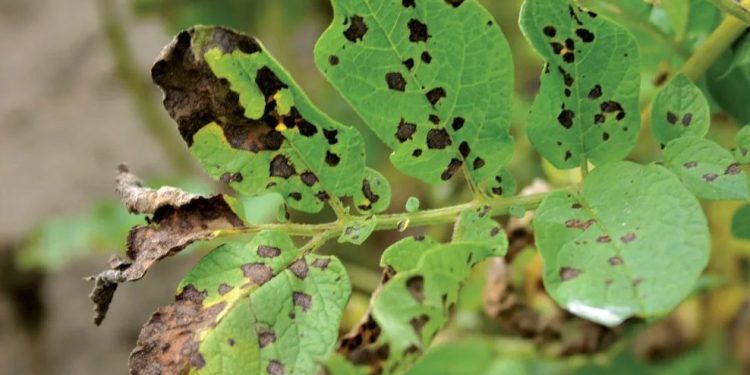#agriculture #potatocrop #blightwarning #farmmanagement #agronomy #diseaseprevention #cropprotection #Ireland #Phytophthorainfestans
Farmers in Ireland Urged to Protect Potato Crop as Nationwide Blight Warning Issued
A recent nationwide blight warning has sounded the alarm for potato farmers across Ireland. According to the latest data, the risk of blight infestation has significantly increased, posing a severe threat to the potato crop. This timely alert calls for immediate action from farmers, agronomists, agricultural engineers, farm owners, and scientists involved in the agricultural sector.
Data from reliable sources such as the Irish Department of Agriculture, Food and the Marine (DAFM) reveals that the prevailing weather conditions have created an ideal environment for the spread of potato blight. The increased moisture and temperature have created a favorable breeding ground for the pathogen Phytophthora infestans, leading to a higher risk of blight infection. Without proactive measures, the consequences can be devastating, with potential yield losses and economic impacts.
To mitigate the impact of blight on potato crops, experts advise implementing a comprehensive management plan that includes both preventive and responsive measures. Some key recommendations include:
Regular Crop Monitoring: Vigilance is crucial to detect early signs of blight infection. Farmers and agronomists should conduct regular field inspections to identify symptoms like dark lesions on foliage, a greasy appearance, or white spores on the underside of leaves.
Timely and Appropriate Fungicide Application: The strategic use of effective fungicides plays a pivotal role in blight management. Based on the guidance provided by DAFM, farmers should adhere to the recommended spray program, applying fungicides at the right intervals and rates.
Crop Resistance and Varietal Selection: Opting for blight-resistant varieties can significantly reduce the risk of crop damage. Consultation with agricultural scientists and experts can aid in selecting suitable potato varieties that exhibit resistance or tolerance to blight.
It is essential for farm owners and agricultural engineers to collaborate closely with farmers to ensure the implementation of preventive measures and effective blight management strategies. Education and knowledge sharing platforms can play a vital role in disseminating up-to-date information and best practices to combat this threat collectively.
The nationwide blight warning in Ireland serves as a stark reminder of the vulnerability of potato crops to devastating diseases. Farmers, agronomists, agricultural engineers, farm owners, and scientists must unite their efforts to protect the potato crop by adopting proactive blight management practices. Timely detection, appropriate fungicide application, and crop selection based on resistance are essential steps in safeguarding the valuable potato harvest.







